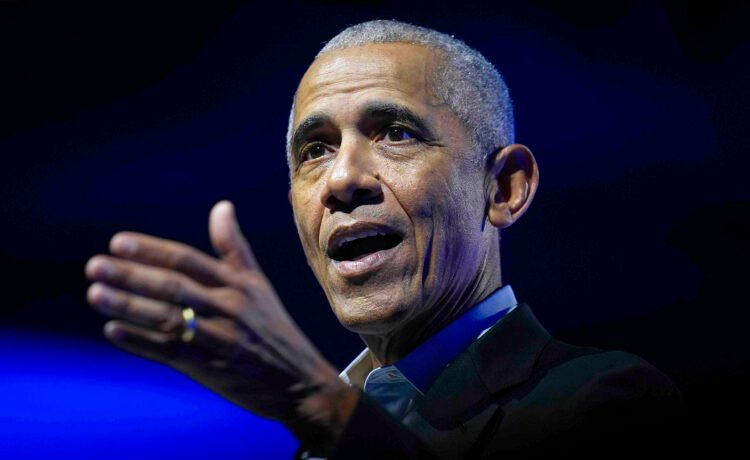(RNS) — Former President Barack Obama at a forum on democracy pointed to the partnership of houses of worship and the success of megachurches as examples of ways to build bridges and foster pluralism.
“The pluralist ideal is what allows a Christian church and Muslim mosque to sit side by side on the same city block — and then maybe agree to share a parking lot,” Obama said Thursday (Dec. 5) at the Obama Foundation’s Democracy Forum in Chicago.
He acknowledged that the work of pluralism — or finding ways to “live alongside individuals and groups who are different than us” — is not easy and takes time.
“Pluralism is not about holding hands and singing ‘Kumbaya,’” he said in his remarks, which were posted on Medium. “And building bridges may require you to deal with people who not only disagree with you, but do not respect you.”
He said he experienced that as president, “where I was negotiating with people who made it pretty clear they didn’t think I should be president, legally, morally,” but he and they strove nevertheless to listen, foster relationships and find compromise.
Obama also said pluralism does not mandate a denial of people’s unique circumstances but does call for understanding “the possibility of a win/win situation, rather than a zero-sum situation.” He cited the Rev. Martin Luther King Jr. as an example of working toward justice with an emphasis on “we” rather than “them” or “us.”
RELATED: Five faith facts about former President Barack Obama’s new book: ‘A Promised Land’
“That’s what King understood in framing the issue, not simply as an African American issue, but as an American issue,” Obama said. “And we have to acknowledge that we all have multiple identities. I’m a 63-year-old African American man, for example, but I’m also a husband, I am a father, and a Christian who is constantly wrestling with doubts about organized religion.”
The 44th U.S. president said pluralism is successful when it reflects action and not just words.
“What does build trust, because it builds relationships, is people banding together to get stuff done,” he said. “Whether it’s a mosque and a synagogue joining forces to help victims of a natural disaster, or a Black community linking up with a traditionally hostile white community in Chicago to try and stop a highway from running through both neighborhoods.”
Obama suggested ways to develop the practice of pluralism, including starting groups where children or adults can work together on particular actions.
Obama cited the nation’s megachurches as an example, inserting a bit of humor as he described some of the nation’s largest congregations.
“If you show up at one of these churches, they don’t start off peppering you with questions about whether you’ve accepted Jesus Christ as your Lord and Savior,” he said.
“They don’t quiz you on the Bible. They invite you in, introduce you around, give you something to eat, tell you all about the activities and groups you can be a part of, from the young adult social club to the ballroom dance group to the men’s choir, which for those of you not familiar, that’s where they put folks whose voices aren’t quite good enough to be in the main choir but who are allowed to perform maybe once every fourth Sunday.”
He said that “big tent” philosophy could be instructive.
“The point is, megachurches are built around ‘let’s get you (in) here, doing stuff, meeting people and showing you how you can participate and be active,’” he added. “Once that happens, then they can have a deeper conversation about faith in a way that folks aren’t spooked by.”
While his remarks were specifically about the U.S., Obama noted that the American democracy is not the only one in need of bridge building.
“The fault lines of division may be regional and linguistic, like they are in Spain; or religious, as they are in India and Northern Ireland; or ethnic, as they are in my father’s homeland of Kenya,” he said.
“But no matter what country we’re talking about, the same basic question remains: Can the idea of pluralism work in the current moment? And, for that matter, is the concept even worth saving? I believe the answer is yes.”
RELATED: The Obama presidency: ‘War on religion’ or ‘Amazing Grace’?















